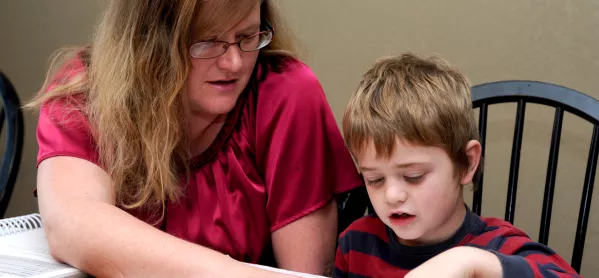- Home
- Don’t tarnish all home educators with the same brush
Don’t tarnish all home educators with the same brush

Questions are finally being asked in parliament about schools “off-rolling” pupils who are likely to pull down their results. Channel 4’s Dispatches programme on Monday, “Skipping School: Britain’s Invisible Kids”, followed Children’s Commissioner Anne Longfield in search of some of them, with the Radio Times claiming: “As the number of children who receive home education rather than going to a mainstream school grows, this Dispatches investigation looks into the reasons behind this rise and the impact it is having on the young people who are being taught in this way.”
“Home education/home schooling”. The loose use of this term dangerously lumps together all children not in conventional formal schooling, too readily implying their parents are somehow neglectful, sinister or abusive. Dispatches barely avoided doing so.
So what is real home education? And what isn’t?
True elective home education occurs when parent and child choose on principle to adopt an alternative to formal schooling: they remain committed to education, but take an unorthodox approach. Sadly, some don’t choose but are forced into that alternative route (with varying degrees of success) after bad experiences in school: typically bullying, a learning difficulty, special need or disability renders them unable to cope with school - and, critically, school unable to accommodate them. Made miserable by their school ordeal, and at risk of emotional or mental harm, such children are sometimes labelled school refusers.
Other children with similar problems don’t refuse school but either cause the institution so much work and trouble (victims of serial bullying possibly lashing out) or (if they are, for example, seriously dyslexic) risk pulling down the school’s results. In the classic off-rolling scenario, a conversation is held with parents that they would be better taking them out of school.
Notwithstanding the many pressures on schools, let’s not excuse this: off-rolling is a euphemism for constructive exclusion.
More-easily justified reasons for off-rolling might include behavioural difficulties or, indeed, sheer bad/aberrant behaviour (knife possession, perhaps) that renders the child a danger in school. Such actions may be necessary: but the children excluded are not being “home-educated”.
Nor are children whose dysfunctional households who can’t or won’t get them to school being home-educated, nor yet children deliberately concealed from all authority by genuine abusers. Nonetheless such cases are constantly generally included in statistics alongside both elective home-schoolers and those on whom it is forced.
Ever-reliable headteacher Vic Goddard, star of Educating Essex, went to the heart of the problem: the system lacks the resources (and, I would add, the flexibility and humanity) to do right by those square pegs that don’t fit neatly into mainstream schooling’s round holes. Given the squeeze on SEND funding, they’re often woefully under-supported in school: outside it, there’s nothing for them.
As for children in unregistered (usually religious-fundamentalist) and thus illegal schools, Dispatches found Ofsted powerless to gain entry. No surprise there: time and again the system is proved toothless when it should intervene. Enquiries following the high-profile, tragic cases of children who died of abuse or neglect (Victoria Climbié, Dylan Seabridge, to name two) found the victims were known to Children’s Services despite not being in school: but they failed to act.
The programme evinced sympathy for the (uncharacteristically illiberal) German law that forbids home-schooling, and echoed calls for a register of all children not in mainstream school.
However, as with most calls to “get tough”, the proposal is over-simplistic and risks tarring all the families of children not in school with the same brush of implied neglect and abdication of parental responsibility. Its likely outcome would be to demonise genuine, principled home-educators and, given the inadequate resources in schools and past ineffectiveness within children’s services, entirely miss both the children crying out for education and those purposefully neglected or abused.
Dr Bernard Trafford is a writer, educationalist, musician and former independent school headteacher. He tweets at @bernardtrafford
Keep reading for just £1 per month
You've reached your limit of free articles this month. Subscribe for £1 per month for three months and get:
- Unlimited access to all Tes magazine content
- Exclusive subscriber-only stories
- Award-winning email newsletters



